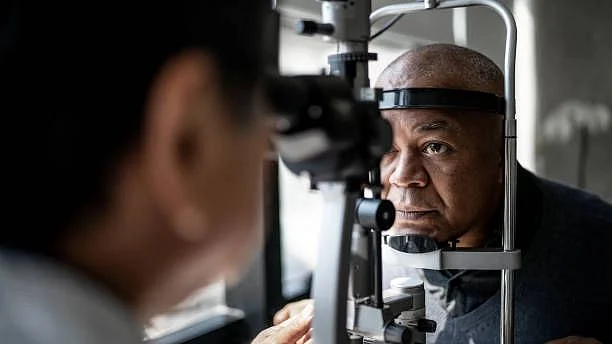Researchers will present a report at the annual conference of the European Society of Human Genetics on 13 June, Monday, outlining the link between the blood vessels in one's retina and risk of coronary artery disease (CAD).
To put it simply, this discovery could lead to a revolutionary change where a person appearing for a simple health screening could have his risk of a Myocardial Infarction (commonly known as a heart attack) also calculated. How?
Let us tell you.
By combining information about the pattern of blood vessels of the retina and the genetic data of an individual, the test provides a more accurate prediction of coronary artery disease (CAD) risk as well as heart attack risk. Retinal imaging is a non-invasive technique that offers multiple insights into our health.
Data from the UK Biobank, a repository that contains about 5,00,000 people's lifestyle and medical records, was used in tandem with other demographic factors including sex, age, smoking status, BMI, and the systolic blood pressure of people who had suffered a heart attack after their retinal image had been studied.
“Strikingly, we discovered that our model was able to better classify participants with low or high MI risk when compared with established models that only include demographic data."Villaplana-Velasco, Presenting author and Phd student, University of Edinburgh
The study also holds promise, because while the average age of identifying a myocardial infarction is around 60 years, this model could detect risk and offer its most accurate predictions more than five years before a myocardial infarction could occur.
So, if a 50-year-old man's data is run through the model, the model could predict how high his risk of a heart attack would be at around 57 years of age.
Thus, this risk can be managed through preventive measures like limiting smoking, starting regular exercise, eating better, and focusing on activites that are not too stressful to your heart.
A simple eye check-up in the future could save your life.
Wider Applicability
These results may also be helpful in identifying predispositions to other diseases. Changes in retinal blood vessel patterns reflect the development of ocular and systemic diseases such as diabetic retinopathy and stroke. Researchers believe that each condition can have a unique retinal variation profile.
Further, Villaplana-Velasco, the presenting author of the report, also expressed her interest in repeating the analysis separately for males and females to check if a sex-specific model could be more accurate.
"More research is needed to show that this improvement in prediction is robust. Work will also be required to understand the feasibility of this approach and determine how best to incorporate these scans into routine clinical practice.”Prof Sir Nilesh Samani, Medical Director, British Heart Foundation (as quoted in the Guardian)
Dr James Ware, Cardiologist and Medical Research Council investigator, stated, "approaches that use computer vision or machine learning to detect subtle vascular features predictive of future heart health appear promising".
However, he also expressed his concerns of the study abstract containing limited details and of it not yet having been peer-reviewed.
Model improvements could be even greater if scores related to genetic predisposition to MI occurrence were added, they said.
For now, more research is needed to back up the findings and how to incorporate them into the routine screening.

